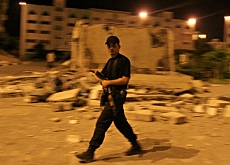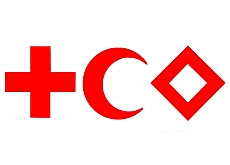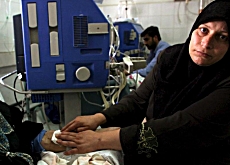Swiss urge Israel to respect humanitarian law

With the escalation of violence in the Gaza Strip, Switzerland is demanding that Israel respect humanitarian law as it seeks to liberate a captured soldier.
A foreign ministry statement said Bern was “deeply concerned” about Israel’s actions in the Gaza Strip.
Israel has used tanks, troops, gunboats and aircraft to attack the Gaza area over the past week to press militants to free a captured Israeli soldier.
When it launched its first large-scale military action in Gaza since withdrawing from the strip last summer, Israel’s declared purpose was to lean on militants to release Corporal Gilad Shalit.
In view of the deteriorating situation in Gaza, the new United Nations Human Rights Council is due to hold a special session on Palestine in Geneva on Wednesday.
Referring to the Geneva Conventions, the Swiss foreign ministry declared that there was no doubt that Israel had not taken the precautions required of it in international law to protect the civilian population and infrastructure.
Switzerland is the depository state of the Geneva Conventions on human rights.
The statement called for the “rapid release” of Shalit, but said Israel had an obligation “to respect international humanitarian law in the measures it undertakes to liberate the captured soldier”.
It said Israel’s destruction last week of the main Gaza electricity power station and its attack on the office of the Palestinian prime minister was unjustified. It also urged Israel to free Hamas legislators, including eight ministers who have been seized.
“The arbitrary arrests of a large number of democratically elected representatives of the people and ministers… cannot be justified,” the statement said.
“They have criticized us even though we are showing restraint,” Aviv Shir-On, Israel’s ambassador in Bern, told The Associated Press in response.
“We are disappointed that the Swiss government did not issue such statements when Israel’s civilian population was constantly under attack from the Gaza Strip.”
Shir-On said the criticism was unfair when Israel was supplying people in Gaza with electricity, water, fresh food and necessary medicine even though Hamas was sworn to the Jewish state’s destruction.
Humanitarian consequences
The large-scale military operation by Israel has had serious humanitarian consequences for people living in the region.
The power station that was destroyed by the Israeli forces on 28 June, provided 43 per cent of the electricity supply to the Gaza Strip. Some 700,000 people have been affected by power cuts.
Water supplies have also been badly hit as not all pumps can continue to function, and in addition there is a lack of petrol and other fuels, the Swiss government said.
In response to the worsening situation, the Swiss government has earmarked SFr1 million for essential medical supplies for the civilian population in the Gaza Strip.
This is in addition to SFr1 million for medicines that was approved in June 2006 by the Swiss Agency for Development and Cooperation (SDC).
A Swiss expert has been deployed to the crisis zone to ensure the smooth running of the humanitarian operations.
swissinfo with agencies
According to the Swiss foreign ministry, an end to the Middle East crisis depends on:
Establishment of a lasting peace founded on UN Security Council resolutions 242, 338, 1397 and 1515, and all the accords agreed by the conflict parties.
Recognition of Israel’s right to exist, in particular its right to security within internationally recognised borders.
Recognition of the right of the Palestinian people to self-governance and the establishment of a viable state in line with UN Security Council resolution 1397.
A just, global and negotiated solution to the problem of Palestinian refugees.
A negotiated ruling on the final status of Jerusalem at the end of which the western and eastern parts would become the capitals of Israel and the future Palestinian state respectively.

In compliance with the JTI standards
More: SWI swissinfo.ch certified by the Journalism Trust Initiative


You can find an overview of ongoing debates with our journalists here. Please join us!
If you want to start a conversation about a topic raised in this article or want to report factual errors, email us at english@swissinfo.ch.